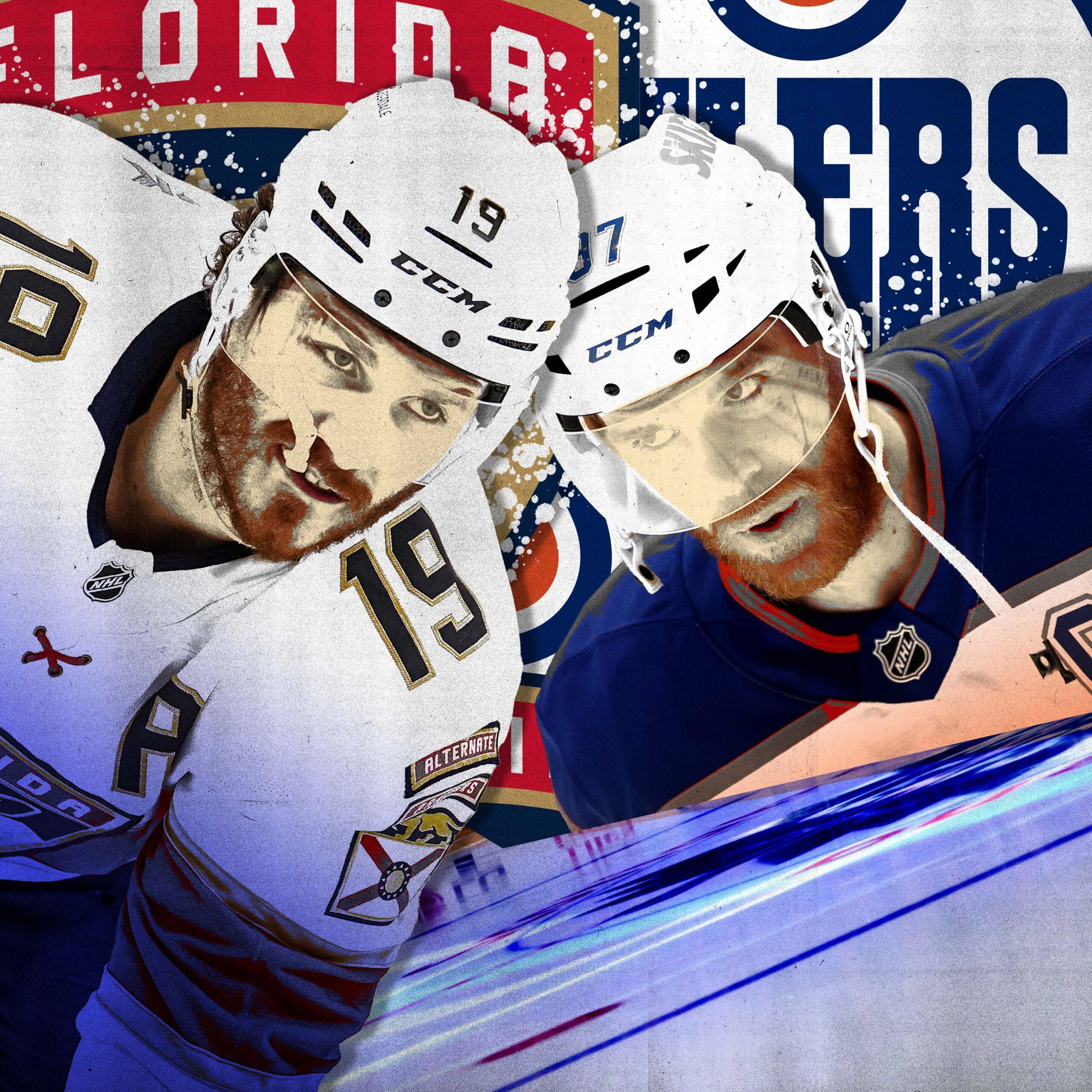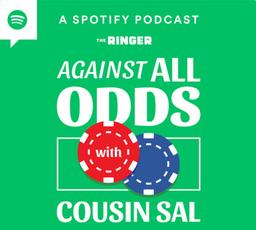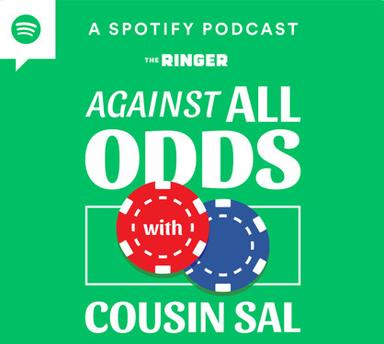In 2012, the hockey phenom Connor McDavid watched the Los Angeles Kings win their first Stanley Cup and tweeted out his feelings about it. “Is it just me,” McDavid wrote, “or does every other kid get jealous wen the stanley cup is awarded. Congrats to the LA Kings #dreams.” He was 15.
Hockey players are creatures of habit and stewards of tradition, and McDavid has always been one hell of a hockey player. So one year later, when the 2013 Chicago Blackhawks stunned the Boston Bruins in six, the McTeen was, like clockwork, back in his feelings. “Always cool watching the Stanley cup presented,” he posted, “but at the same makes me so jealous.”
Now 28 years old, McDavid is the Edmonton Oilers captain and the NHL’s top player, and last summer he was finally more than a spectator during a Stanley Cup final. Dodging and weaving and scoring and cursing, he helped will his team back from a 3-0 series deficit against the Florida Panthers … before the Oilers ultimately lost Game 7 to a Panthers team that had itself lost in the final a year earlier. There were no tweets about jealousy this time, but after the decisive game, a documentary film crew captured McDavid red-faced and crying in the Oilers locker room, looking as though he was struggling to catch his breath for reasons unrelated to fitness. Breaking the silence, his teammate, winger Zach Hyman, shouted: “I know we’re gonna be back. I fuckin’ know we’re gonna be back, boys.”
And so they are. Not only the Edmonton Oilers, but the reigning Florida Panthers, too, each team arguably better than last year and ready for a full-on run-it-back Stanley Cup rematch that begins on Wednesday night. (Well, maybe not full-on: poor Hyman, of all people, recently sustained an injury in the Western Conference final, a solid blow to the Edmonton offense.)
“I think we spent seven months getting ready for this playoff run,” Oilers coach Kris Knoblauch remarked to the media earlier this week. “I think it was on our minds since we lost that last game.” The hockey world found it hard to forget that last game, too: “Enough about last year. Enough about last year!” McDavid was already snapping way back in October. “It’s about this year.” It took awhile, but now this year has arrived.
The biggest Stanley Cup story this season is the simplest. The best player in today’s NHL, and arguably the best player in NHL history to not have his name on the Cup, is trying his glowering damnedest to finally win one. But simple doesn’t always mean easy, and the Oilers enter the final as a bit of an underdog despite having home-ice advantage in the series. The reason being that this Florida team already knows what it’s like to lose a Cup and to win one, which means they know exactly which outcome they’d like to repeat.
“Well deserved,” McDavid told Panthers firebrand Matthew Tkachuk in the handshake line last season. “Hopefully we’ll see you next year,” Tkachuk replied.
In 2023, the Panthers had been the ones on the un-fun side of this kind of exchange, losing the Cup to the Vegas Golden Knights (who themselves had been just a few wins away from a title in 2018). But powered by 22 points apiece in 24 playoff games from both Tkachuk and workhorse captain Aleksander Barkov—and by mighty shutdown work from blue-line Adonis Gustav Forsling—the Panthers withstood Edmonton’s desperate clawback from the 3-0 deficit, taking care of business in Game 7.
This year, the Panthers have been their same old selves, only better. They snagged Boston’s Brad Marchand, by my unofficial count the NHL’s all-time leader in Points Scored While Smirking + Legit Rabbles Roused. (If I said that one of Florida’s recent feel-good stories involved the murine marriage of both the Panthers’ and Marchand’s pre-existing rat-related lore, would you believe me? You would—and you would be right to do so—which is why there’s no one quite like Marchand.) They liberated perky blueliner Seth Jones from Chicago, adding to an already impressive defensive corps. Barkov won the NHL’s King Clancy award for his leadership, and the Selke Trophy for his two-way prowess. Getting second place in Selke voting? Barkov’s linemate, Sam Reinhart. Backstopping it all in goal, Sergei Bobrovsky has started every playoff game for the Panthers, going 12-5 with three shutouts.
All in all, the Panthers have hummed along with that it’s cool, we’ve got this resilience/insouciance/nerve of a champion. They lost seven of their last 10 games in the regular season, then won four of five against the Tampa Bay Lightning in the opening round of the postseason. They dropped the first two games of their second-round matchup with the ravenous Toronto Maple Leafs—and were down 3-1 in the third period of Game 3!—before rather hilariously (sorry!) sending them packing in seven. After that, they kinda just pounced on the supposedly frisky Carolina Hurricanes. Big cats, those Panthers, batting around their prey.
The Oilers ought to be less skittish and more wily than Toronto was, though, and more seasoned than Carolina. Edmonton features not only McDavid but also his star lieutenant, Leon Draisaitl. The 29-year-old, who has been a prolific 100-point scorer in six of the past seven seasons, was hampered by injury during the final last year but is now closer to common highlight-reel form.
And while Edmonton was dealt a huge loss when Hyman went down against Dallas, not all of the injury news during that series was so bad: shutdown defenseman Mattias Ekholm rejoined the team last week. With offensive blueliner Evan Bouchard creating chances for the Oilers and Corey Perry and Evander Kane hoping to add an (annoying) offensive spark, the Oilers boast a talented lineup.
But look at any survey of experts asked to predict who will win the Cup, and a fun trend emerges. The ones who choose the Florida Panthers do so for concrete, sensible reasons: because of the thoughtfully constructed roster, and that remarkable depth, and the diverse blue line, and the players’ three-straight-finals experience, and the team’s uncanny ability to morph between bruising physicality and divine skill.
And the ones that pick Edmonton? In just about every case, they say something like: McDavid and Draisaitl are on a mission, you know? You can disagree with the logic, but you also can’t really argue with that.
“How do you react,” the reporter asked the athlete, “to people who say all of your statistics and personal accomplishments don’t mean as much unless you win the Stanley Cup?”
“Sure, I believe that,” Wayne Gretzky said.
It was May 1984, and the 22-year-old Gretzky’s Edmonton Oilers were facing the New York Islanders dynasty in the Stanley Cup final for a second year in a row. The previous season, the Islanders had swept the Oilers to win a fourth straight title, a real kick in the pants. Or, at least, a real stick to the pants: In Game 2, Isles goalie Billy Smith thwacked Gretzky and later taunted, “I told him that if his pants were so thin, I’d buy him a new pair.” Gretzky finished the series with no goals. Now, Edmonton was back to try again.
“You play pro hockey for one reason,” continued Gretzky, who was coming off a regular season in which he’d recorded 205 points in 74 games. “To win the Stanley Cup. I believe you’re a winner when you win it all. But in defense of that, it takes 20 guys to win a Stanley Cup. One guy can’t do it alone. If that were true, then Boston would have won eight years in a row because Bobby Orr was so dominant.” (Orr’s Bruins had won Cups in 1970 and 1972 before losing in the final in 1974, 1977, and 1978; no team since has appeared in and lost back-to-back Cups.)
Gretzky was right. When the Oilers beat New York in five games to lift their first Cup, he didn’t do it alone. Thirteen different skaters scored goals in that series. “I feel like retiring right now,” Gretzky crowed after the victory. (Instead, he’d go on to win three more Cups in the next four seasons.) “This is the greatest feeling. I’ve been in the NHL for five years, and all the time you pick up the paper and read, ‘Well, they haven’t won the Stanley Cup yet, so they’re not that good.’ Well, we’ll never have to hear that again.”
McDavid, whom Gretzky himself once deemed “the best to come along since [Mario] Lemieux and [Sidney] Crosby,” has now been in the NHL for twice that long.
Drafted first overall in 2015—the Oilers had been so bad for so many years at that point that he was their fourth no. 1 pick in six seasons—McDavid has led the league in scoring five times, won the Hart Trophy as most valuable player thrice, withstood multiple organizational shakeups and “really high—really, really high” levels of frustration, and scored you-go-ahead-no-you-go-ahead goals like this when it mattered most. The other day, I saw a stat about McDavid generated from player-tracking data that was genuinely hard to wrap my mind around: 43 times during this year’s conference finals, McDavid achieved bursts of speed upward of 20 miles per hour. The next-best player did so 18 times.
But, yes, McDavid hasn’t won a Stanley Cup, which means a gleeful SoFla sports columnist can mail in a barb like “McOverrated,” neener neener. (A column so not-nice he wrote it twice.)
That’s bait—not that the stolid, eyebrows-down McDavid would ever care or take it. The guy has long been an old soul, but this season, buoyed by his winners-win performance in the NHL’s successful 4 Nations international mini-tourney, he’s grown more captainlike than ever. On the ice, he took care of the Kings’ silly attempts to take over the first-round series, putting an end to their ambitious nonsense with the “here we go again” command of a dad ending a squabble by striding away with a kid wriggling under each bicep. Off the ice, he modeled … a whole lot of nothing (complimentary).
“I think this run has felt different than last year. It's felt very normal,” said McDavid, speaking with ESPN’s Emily Kaplan after clinching a berth in the Cup final with a tidy five-game win over the Dallas Stars. (Who promptly unraveled—and how!) “It's felt very, I don't want to say boring, because it's not boring at all, but it hasn't been as emotional. We haven't had the highs, and we haven't had the lows. It's just kind of been steady and I think that's put us in a good position.”
You can hear the echoes of Gretzky in 1983, after the Oilers lost to the Islanders and he was asked what struck him about the exasperating victors. “Their composure, their stamina,” he said. “We’ve come a long way, yet we’ve got a long way to go by their standards. They’re composed. They don’t get very exuberant when they get up, or overly down when they lose.”
This Cup final isn’t all about McDavid, to be clear. It’s also about whether Barkov’s line can, once again, smother McDavi—I kid, I kid! If things go the way most championship matchups do in hockey, this Cup final will almost certainly wind up hinging on some unsung player, cursed bounce, or hectic beef that isn’t obvious to predict. As it stands, all manner of questions swirl around the ice:
- Which player has the most to gain in the offseason from this series? (It’s probably Sam Bennett, who, like his teammate Aaron Ekblad, will be a free agent a few weeks from now.)
- Will Panthers coach Paul Maurice gatekeep the eventual handshake line, or did he just feel like needling Rod Brind’Amour for sport? Be honest, Coach!
- Which surname-Skinner on the Oilers will revive their career reputation most: goalie Stuart, who was shaky to start the playoffs but has been exactly as good enough as he needs to be ever since; or classically trained forward Jeff, who finally broke the seal and scored his first career playoff goal in his first career playoff goal last week, 15 seasons into his NHL career?
- Whose injuries will have the trickier ramifications: (a) the various OK-to-play but potentially nagging ailments that might slow down Reinhart or Tkachuk; (b) Hyman’s total loss from the Edmonton lineup; or (c) some secret third horror that we’ll find out in the hours following Game 7? (I’ll never forget u, Patrice Bergeron’s torn rib cartilage, broken other rib, and separated shoulder that felt like a ruptured spleen.)
In the decades since that 1984 Oilers-Isles series, only one other Stanley Cup final has featured a clash between the same two teams from the previous season. In 2009, Pittsburgh and returning champs Detroit faced one another for a second time. The veteran Wings had two players on the roster under the age of 24; the Penguins had a whole handful of young guns, led by 21-year-old captain Sidney Crosby. (Wings goalie Chris Osgood admitted to the Post-Gazette that after the thrill of facing and besting Crosby in the final the year before, he’d found it difficult to “get up for a [regular season] game on Tuesday when it’s snowing against Minnesota.”)
Games 1 and 2 that year were held on back-to-back nights (!) and the Red Wings won both of them, lickety-split. The Penguins’ chance to avenge 2008 felt like it was over almost as soon as it had begun. But then Crosby and Geno Malkin, and also a lot of players who weren’t Crosby or Malkin, remembered they’d already lost and started playing like they had nothing to lose. Before Game 7, Lemieux texted the Pens players: “This is a chance of a lifetime to realize your childhood dream to win a Stanley Cup. Play without fear and you will be successful!! See you at center ice. Mario.” This time, Pittsburgh won.
I’m guessing McDavid was watching all of this, feeling galvanized and jealous. He would have been 12 that summer, and he almost certainly would have had starry eyes on Crosby. I say that because in 2020, McDavid sat down with Gretzky himself for a GQ interview and told him that his career highlight so far, the one that had left him actually agog, had been the first time he faced off against the man they once called Sid the Kid. “The whole time I was watching him during the anthem,” McDavid said. On the opening puck drop, “I don't even think my stick touched the ice, he swept it back so fast.”
Gretzky’s best memory? A similar one involving Stan Mikita, but then also: “lifting the Stanley Cup was something that you just can't describe,” he told McDavid. “And I know one day you're gonna get that feeling.” Should that day ever come, maybe somewhere out there a kid destined to become the next best hockey player in the world will watch it all happen, and—in grand hockey tradition—start seething.




